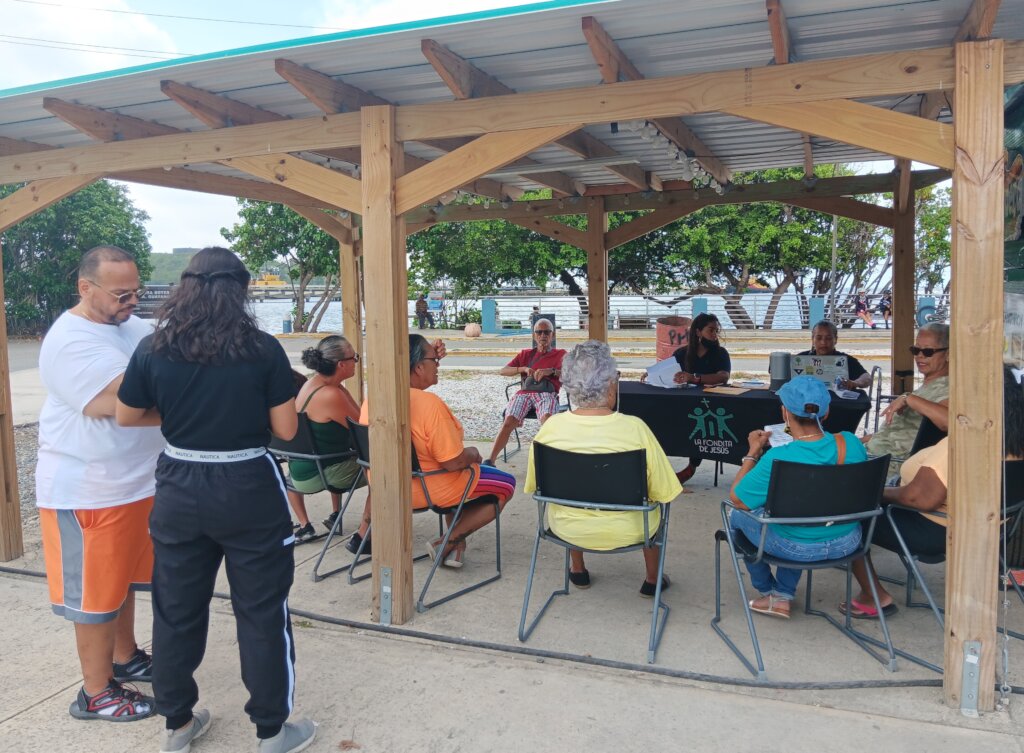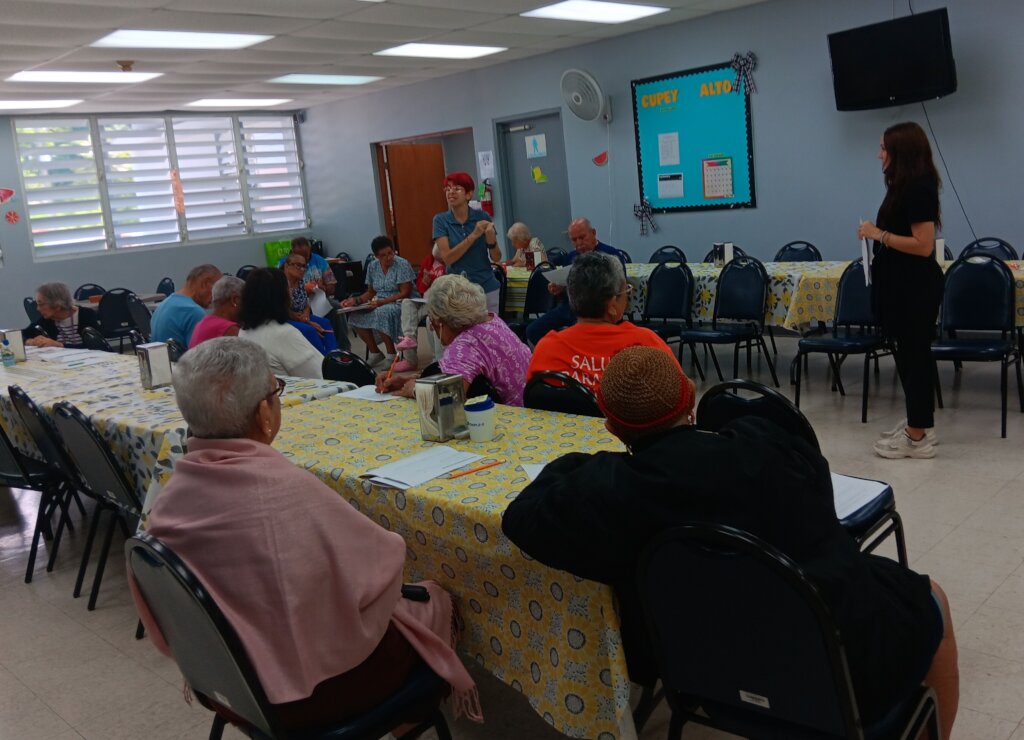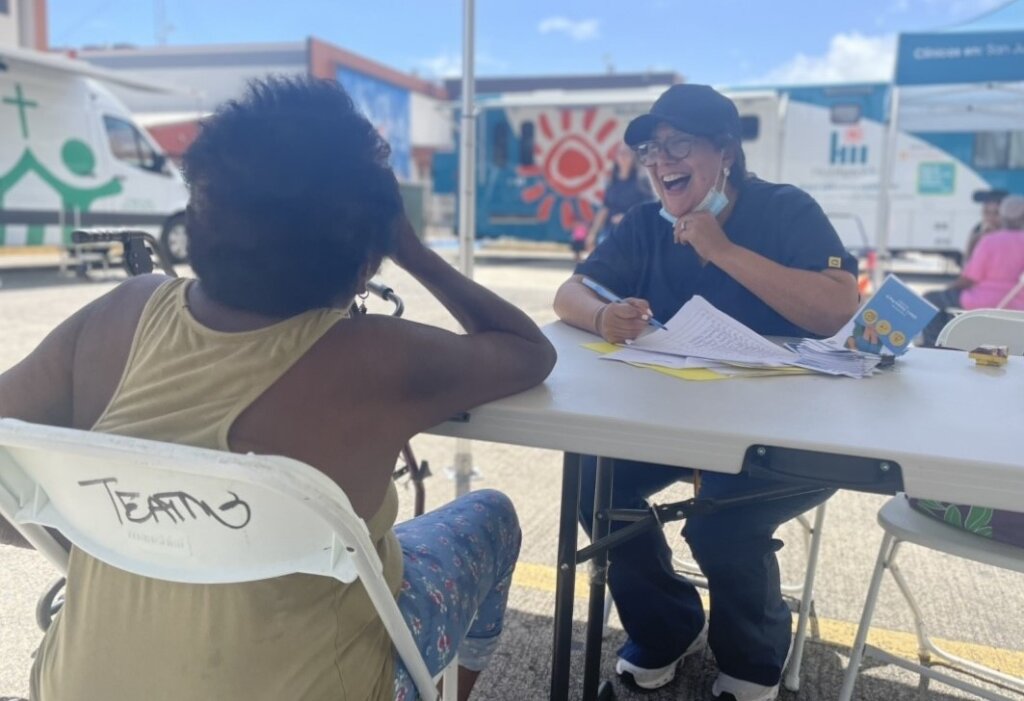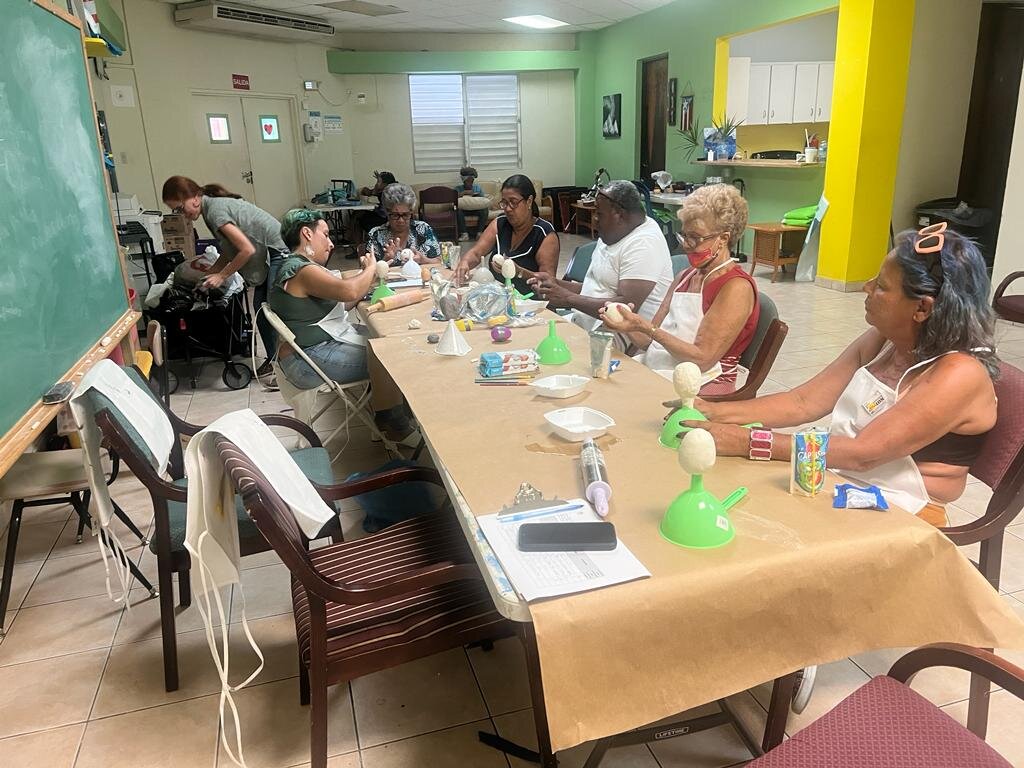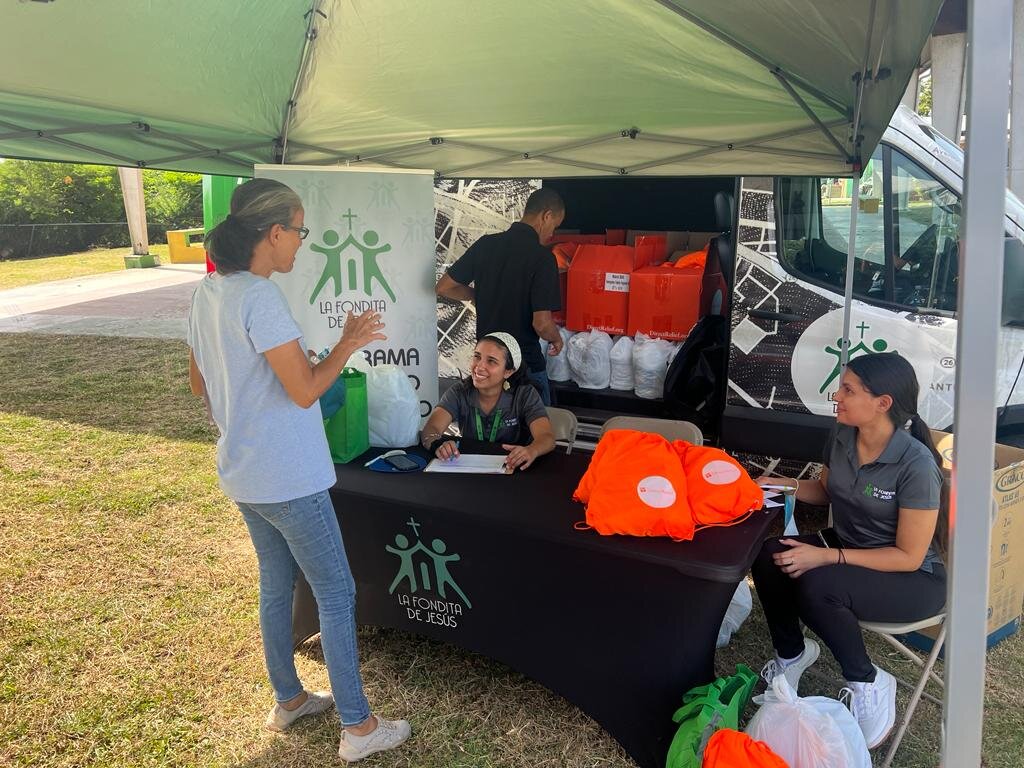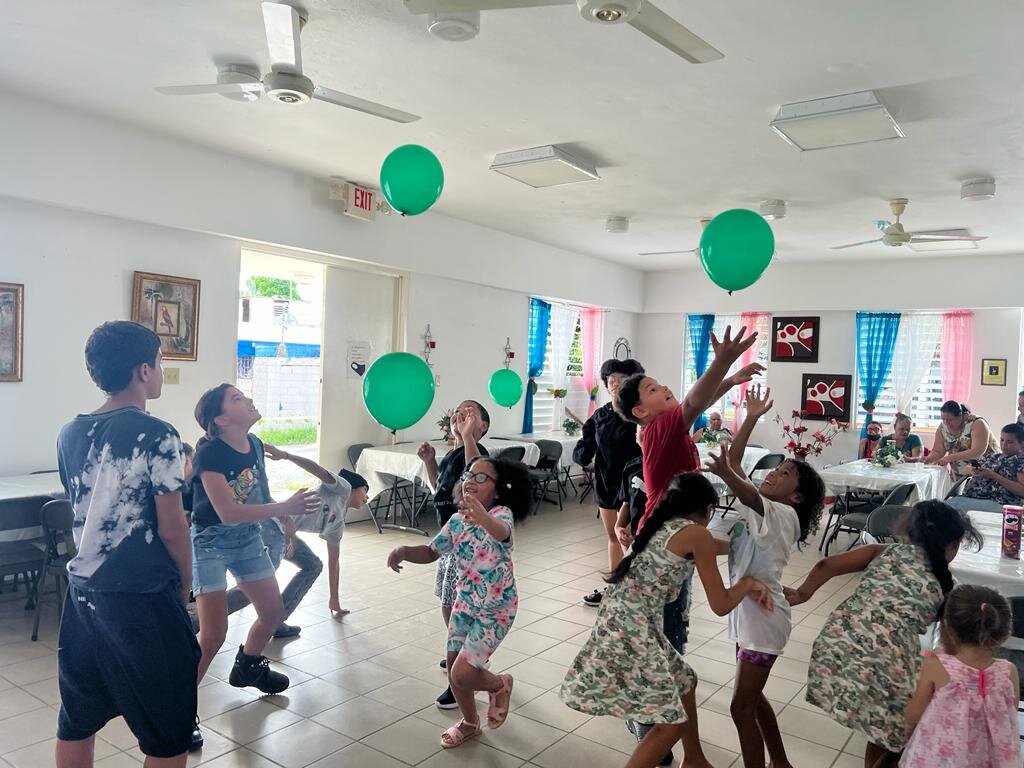Project Report
| Sep 14, 2023
Qtly Report - La Fondita de Jesus in the Community
By Geraldine Bayron-Rivera, Ph.D. | Development & Programs Planning Director
![]()
Distinguished Donors:
Greetings on behalf of Corporación La Fondita de Jesús’ family. With great respect, we are reporting our achievements and challenges while providing services to vulnerable communities through “La Fondita de Jesús en la Comunidad” (La Fondita de Jesus in the Community) program from June through September 2023.
During this quarter, our project delivered a total of 3,958 service units to 1,355 unique individuals and families in 100 communities, from which 46 (46%) were impacted for the first time by our project. In other words, an average of 3 units of services per participant. These communities are located at the following 18 municipalities (23%) of Puerto Rico (representing north, south, east and center of the island): Aguas Buenas (1), Bayamón (6), Caguas (1), Carolina (58), Canóvanas (150), Cataño (1), Cayey (1), Guayanilla (93), Guaynabo (3), Humacao (1), Loíza (39), Rio Grande (1), San Juan (776), Toa Alta (2), Toa Baja (112), Trujillo Alto (1), Utuado (147), and Vega Baja (1).
Trying to keep you as informed as possible regarding the demographic descriptions of the people we provided services to during this period, the distribution per gender was as follows:
- Females = 65%
- Males = 35%
44% of the population served (n=596) were older adults (ages 60+), 9% (n=120) were children (ages 0-17), and 2% (n=29) were young adults (ages 18-24); all from vulnerable communities. We always point out that these individuals, families, and communities, are at imminent risk of losing their homes given their needs, life circumstances, and social determinants of health.
Workshops were developed and provided regarding the following themes:
- Empathy and Sensibility
- How to create an effective resume (job training)
- Public security
- Rights of immigrant populations
- Living within my community: developing a sense of belonging
- Basic handling and use of the cell phone for older adults
- Camaraderie and teamwork
- Self-knowledge and self-esteem
- Introduction to pickling, preservatives, and fermentation (food security)
- Home gardens (food security)
- Puppet therapy for older adults and homeless participants
Some of our most important achievements during this period were as follows:
- During this period, we had the opportunity to impact 46 new communities.
- In general, participation of community members continues to increase.
- There has been an increase in the number of community sectors available and enabled for developing activities and/or workshops among the municipalities impacted.
- Community leaders cooperate when convening their members and help with the logistics of the activities or workshops, embracing a stronger peer support network in their neighborhoods. We had meetings with community leaders from 10 communities regarding organization, preparation, and expanding communities’ capacity for self-management through innovative strategies. Through these community talks, we perform a needs assessment; during this quarter we identified 18 crucial needs common to most impoverished communities.
- We supported 22 families at risk of losing their homes with overdue payments for utilities (water and electricity), and rent, preventing them from being evicted and becoming homeless.
- We establish four (4) new collaborative agreements with other non-profits, government agencies, faith-based organizations, and the private sector, among other stakeholders.
- Through our mobile clinic, we facilitated 12 health fairs and clinical activities giving access to health, wellness, and social services, workshops, and orientations to people in need within vulnerable communities in Puerto Rico that cannot easily access public health services, particularly older adults.
- Since August is back-to-school month, we provided school materials and backpacks for 108 children from impoverished communities. We used the opportunity to offer activities for these children because we believe in promoting their right to develop their voices through children’s human rights workshops that embrace the healthy development and awareness of the social justice to which they are entitled. Thus, fostering social values and a sense of belonging as a way of preventing social situations that may result in homelessness or social isolation.
- June represents the start of the hurricane season, so we provided vulnerable communities with workshops and orientations regarding emergency management and preparedness for any natural disaster, especially tropical storms, and hurricanes. With said workshops, we distribute 231 emergency backpacks, 132 boxes of bottled water, and 307 hygiene kits to families residing in high-risk and susceptible situations.
- We have observed that educational interventions have facilitated the exchange of intergenerational knowledge. This exchange fosters improved interpersonal relationships within the community, enhances the community's sense of belonging and participation in change processes, and empowers younger individuals with leadership and critical thinking skills, enabling them to advocate for community needs. These benefits contribute to both individual and collective well-being.
Challenges:
- Older adults and other populations in vulnerable communities are still struggling with the digital gap to coordinate appointments and access social, clinical, and other services, due to the unplanned digitization of government and private processes.
- Isolation and loneliness continue to be observed amongst older adults in various communities, especially those that have been suffering continuous earthquakes on the southwestern coast of the island since 2020.
- The politicization of community leaders still represents a challenge. When we enter communities to identify their needs, we find community leaders who respond to their own interests, who are aligned with their political ideals, and who do not necessarily contemplate the real needs of the communities. In many instances, this translates into a limited participation of other people in the communities who are not aligned with those political ideals, even with first-hand knowledge of the people’s needs. These situations provoke divisions among the residents of communities themselves, making it difficult to identify needs and establish priorities.
- Also, we’ve encountered confrontations and poor communication between some community leaders. This affects the participation of other people in the community and limits the opportunities to share ideas and possible solutions to the common problems they may be facing. At the same time, it requires greater effort and support from our organization’s professionals since they must deal with these differences, educate, and mediate conflicts to provide continuity to the work that is being carried out.
- One of the most difficult challenges for communities is the rise in gentrification and displacements since it puts the permanence and quality of life of the residents in the community at risk. At the same time, the risk of marginalized and vulnerable populations experiencing the phenomenon of homelessness increases, which implies greater demand for services and the deterioration of people in their individual and collective character.
- Vulnerable communities are suffering from food insecurity due to socioeconomic conditions. There are constant requests from community leaders for emergency groceries or hot lunches for people in need within the community (e.g., older adults living alone). However, funding for food has received cuts across the board from agencies and foundations that used to support these programs, so it has become difficult to provide these services, although we still offer them in smaller quantities.
- Government agencies continue to stigmatize vulnerable communities and the LGBTQIA+ population. There is a constant limitation of available services tempered and contextualized to the needs of these populations. Additionally, it should be taken into consideration the access disparity of people from vulnerable sectors to resources such as transportation, health insurance, and education, among others, to receive an appropriate treatment or service plan.
- There are safety issues that remain to be considered challenges or even threats for the communities and their residents. There is little or no lighting in the streets, sports and recreation areas, and parks, among others. Also, there is little or no maintenance in the green areas of the communities, with accumulation of garbage and debris in busy areas, which makes pedestrian access impossible and unsafe, causing illnesses and possible falls or accidents.
We are extremely grateful to all of you, our social investors, who believe in our work and commitment, and continue to give us the opportunity to consistently impact the lives of so many people! Should you need additional information or if you have any questions regarding this report, please do not hesitate to contact us through GlobalGiving Foundation. Thank you!
![]()
![]()
![]()
![]()
![]()
Links:
![Share on Twitter]()
![Share on Facebook]()
